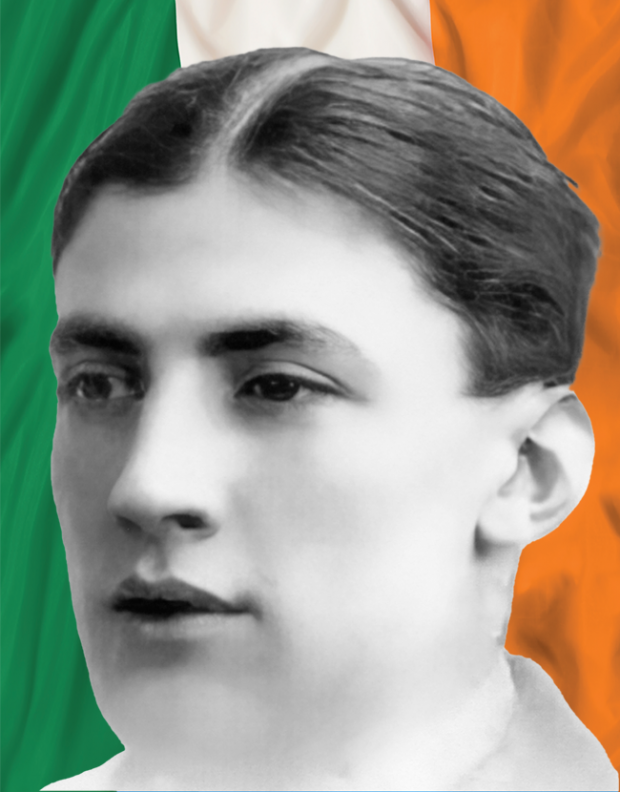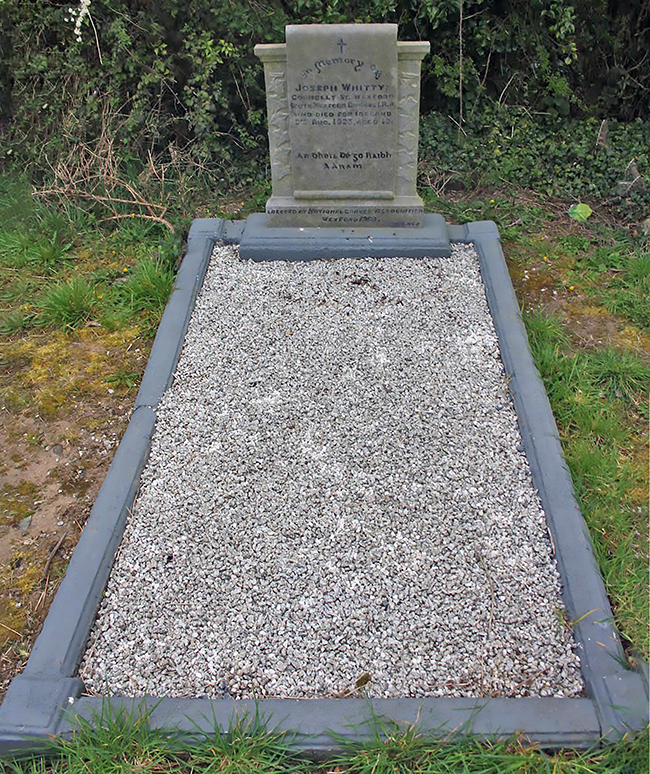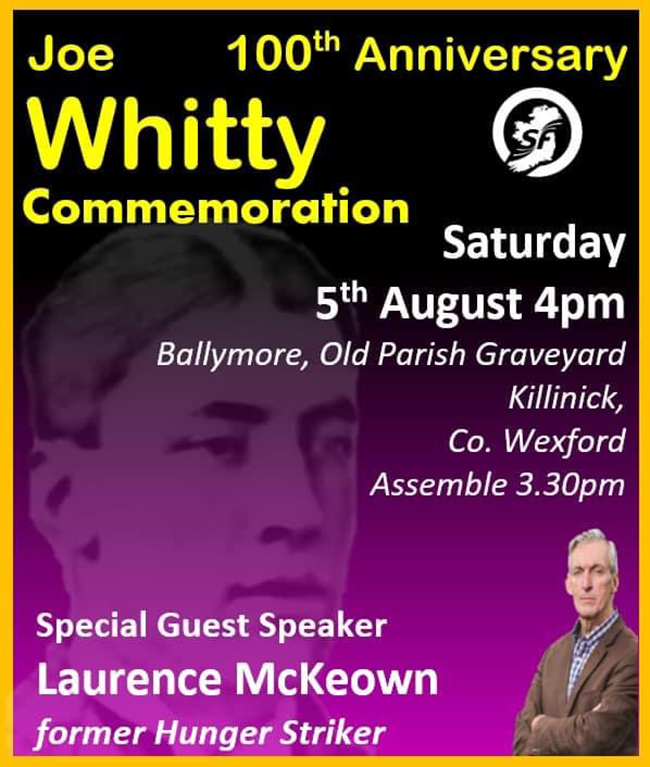2 August 2023
Centenary of hunger striker Joseph Whitty
Remembering the Past - 100 years ago

• Joseph Whitty died on hunger strike, 2 August 1923
By August 1923 there were over 11,000 Republican prisoners in Free State jails and prison camps, the vast majority of them interned without trial. The Civil War was over but the Free State government showed no sign of releasing prisoners, instead that month it passed another Emergency Powers Act to give itself more legal powers to detain citizens.
There was a renewed prison struggle against harsh conditions and for release. There were protests in Mountjoy, Kilmainham, Portlaoise and the Curragh Camp. There were individual hunger strikes including by Daniel Downey in the Curragh in June. He died shortly after ending his fast.
Another protesting prisoner in the summer of 1923 was Joseph Whitty of Wexford. From a strong Republican family, he was interned in the Curragh in October 1922. It seems that Joseph’s brothers, both IRA Volunteers, were the targets of the round-up, but in their absence Joseph was taken by the Free Staters.

• Joseph Whitty's grave in Ballymore Cemetery, Killinick. Co. Wexford
Joseph undertook a protest fast in the Curragh where he was visited by his mother but was so ill he was unable to recognise her. On 22 July a public meeting in support of Whitty and his fellow prisoners was held in New Ross, addressed by Cumann na mBan activist and author Dorothy Macardle. The Free State government refused all appeals for release and on 2 August 1923 Joseph Whitty died. He was 19 years old. He was given a Republican funeral at Ballymore Cemetery, Killinick. Co. Wexford.
Two days after Joseph’s death, Republican prisoner Patrick Hickey died in the yard of Portlaoise Prison after he was shot earlier in the day by Free State soldiers and denied medical treatment during a protests by the prisoners.
Later in 1923 there was to be a mass hunger strike involving nearly all the internees.
Joseph Whitty died on hunger strike 100 years ago.

Follow us on Facebook
An Phoblacht on Twitter
Uncomfortable Conversations

An initiative for dialogue
for reconciliation
— — — — — — —
Contributions from key figures in the churches, academia and wider civic society as well as senior republican figures





